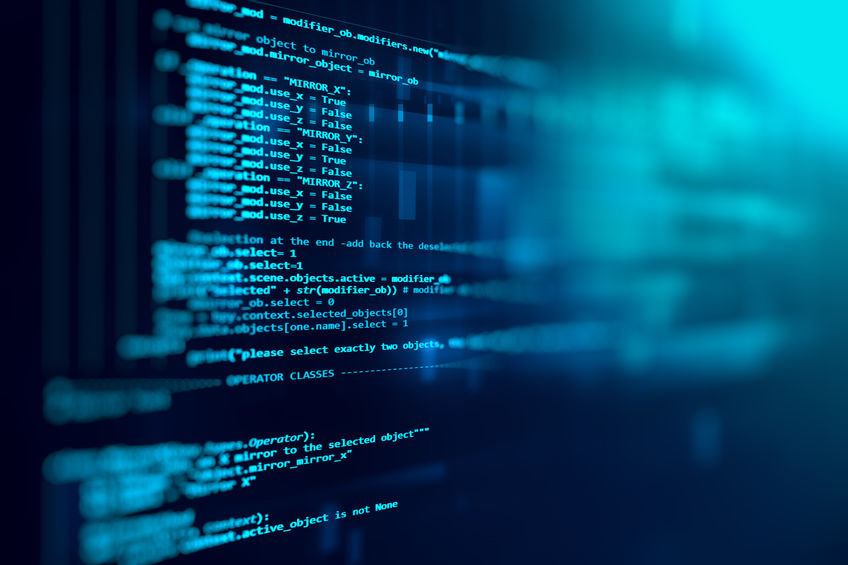Section 102(b) of the Copyright Act of 1976 explains that copyright law does not protect an “idea, procedure, process, system, method of operation, concept, principle, or discovery, regardless of the form in which it is described, explained, illustrated, or embodied in such work.” As part of the work leading to this Act, Congress established the National Commission on New Technological Uses of Copyrighted Works (“CONTU”). CONTU reported that computer programs “are prepared by careful fixation of words, phrases, numbers, and other symbols”. Furthermore, the word “writing” in the Constitution has broad and dynamic meaning, as seen by the nature of works that have been found constitutionally copyrightable. Thus, “some form of protection is necessary to encourage the creation and broad distribution of computer programs.” Eventually, the Computer Software Copyright Act of 1980 amended the 1976 Copyright Act to provide for the copyright of computer programs.
What is Software API?
API stands for Application Program Interface. API is a software intermediary that allows applications to communicate with each other. APIs facilitate software communication by transferring small packets of data between software programs.
Fair Use
The Fair Use Doctrine, located in Sec. 107 of the Copyright Act of 1976, allows for the fair (non-infringing) use of a copyrighted work for purposes such as criticism, comment, news reporting, teaching, scholarship, or research. The factors to be considered in a fair use determination are: (1) the purpose and character of the use, including whether such use is of a commercial nature or is for nonprofit educational purposes; (2) the nature of the copyrighted work; (3) the amount and substantiality of the portion used in relation to the copyrighted work as a whole; and (4) the effect of the use upon the potential market for or value of the copyrighted work. Every commercial use of a copyrighted work is presumptively an unfair exploitation of the copyright owner’s monopoly privileges according to caselaw.
Google v. Oracle
The now-famous “Google v. Oracle” case (2021) revolved around the use of Java SE, a popular open-source programming platform. Google LLC (“Google”), in designing its Android operating system for smartphones, initially sought to license Java SE from its owner, Sun Microsystem (“Sun”), including the Java API. Negotiations fell apart and Google developed its own platform by copying 11,500 lines of code; comprising 37 Java shorthand commands (APIs); and replicating the structure, names, and functions (3% of the code). Google independently re-implemented 97% of the code.
In 2010, Oracle America, Inc. (“Oracle”) purchased ownership rights to Java and sued Google for infringing on its copyright by copying the “structure, sequence and organization” of the API packages. After a lengthy ruling and appeals process, the Supreme Court granted certiorari in 2019 to consider: (1) whether copyright extends to APIs and (2) whether Google’s use of the Java APIs was fair use. The Court ruled affirmatively on both matters but limited the scope of the ruling to the copyright-ability of APIs, declining to set the standards for assessing whether other forms of software qualify for copyright protection.
In addressing the factors to be considered in a fair use determination, the Court noted that: (1) the value of API lies “in its efforts to encourage programmers to learn and to use that system so that they will use (and continue to use) Sun-related implementing programs that Google did not copy;” (2) Google copied no more than the necessary portions of the Sun Java API in order to create a new platform, the Android platform, which is consistent with the “creative ‘progress’ that is the basic constitutional objective of copyright itself;” (3) only 0.4% of the Java API was copied; and (4) the effect of the use upon the potential market for or value of the copyrighted work was minimal because markets for smartphones and computers are different and value derived from new users being attracted to a program because of its expressive qualities is distinguishable from a program this is valuable because users are accustomed to it.
Conclusion
The Court noted that “The fact that computer programs are primarily functional makes it difficult to apply traditional copyright concepts.” Google used “only what was needed to allow users to put their accrued talents to work in a new and transformative program”. This decision suggests that the Supreme Court is cognizant of the rapid and exponential growth of technology. It recognizes the importance of allowing companies to innovate based on pre-existing, standard industry knowledge, functionality, and practices. An Oracle victory may have created a chilling effect on software development. However, Google’s victory may weaken protection for copyright for software code developers, encourage competitors to poach software code, and reduce the motivation for true innovation within the industry. To discuss how this ruling may impact your ability to protect your businesses’ proprietary software, contact an experienced business law attorney today.








